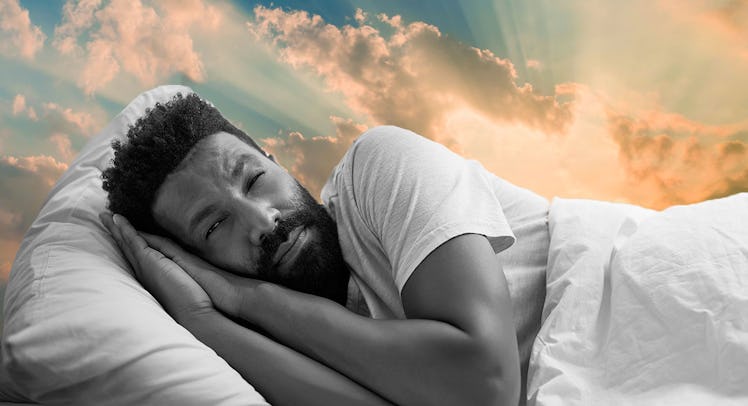Scientifically Backed Ways To Be A Better Morning Person
It's not about how early you rise, it's what you do with it.

From Dwayne “The Rock” Johnson to Richard Branson, some of the most successful men alive claim that their secret is waking up at the crack of dawn. But research suggests that it’s not as simple as the early bird getting the worm—or getting paid. You need a morning routine to get the most out of those dawn hours. Here are five scientist-approved ways to maximize your morning.
Wake up at the Same Time Every Day
Getting up at the same time every day might matter just as much as getting up early. One study that followed 61 Harvard students for a month found that individuals with the most consistent wake-up times performed better than those who opted to mix it up, despite getting the same amount of sleep overall. When authors Benjamin Spall and Michael Xander interviewed 300 successful people about their morning routines, they found that the average wake up time was a very specific 6:27 a.m. Every single day.
Make Time for Things That Make You Feel Good
In their research Spall and Xander also found that the most successful morning people got up early to carve out time for things that make them feel good. This may be especially important for parents who may not otherwise have that time once the kids wake up. There’s evidence that journaling and exercise are great ways to get ready for the day, unless you hate exercise and journaling. Marie Kondo, lifestyle consultant and host of a new Netflix series, says she starts the day by opening windows, burning incense, and of course, tidying up, but the trick is finding what works for you. Drawing a blank? Morning sex can boost mood, lower blood pressure, and improve concentration, not to mention make for a better marriage. So maybe start there.
Kill Your Alarm Clock
While it may seem hard to become a morning person—and certainly a consistent one—without an alarm clock, learning to not depend on it is one of the best things people can do for themselves. Alarm clocks jolt people awake and cause what experts refer to as “sleep inertia” — a period of cognitive and motor impairment after waking up that feels like it qualifies as a coffee emergency.
Hitting the snooze button, perhaps the worst part of the alarm clock, makes matters worse. “By dozing off for those extra minutes, we’re preparing our bodies for another sleep cycle, which is then quickly interrupted – causing us to feel fatigued for the rest of the day that lies ahead,” sleep expert Neil Robinson told The Independent. It might seem more challenging, but counting about eight hours back from your desired wake up time is the best way to avoid sleep inertia…and punching your alarm clock.
Commute Early (But Not Often)
People with longer commute experience more headaches, backaches, digestive problems, higher blood pressure, sleep disturbances, fatigue, and concentration problems compared to those with shorter commutes, studies show. However, morning commutes can be more enjoyable and productive than evening trips home, and commuters report much easier and less congested commutes early. So if you absolutely must commute, make the smart decision to get it out of the way early in the day.
Besides, being the first to show up in the office each day isn’t a bad look.
Expect Everything to Go Wrong
As much as morning people may seem like meticulous monsters who compulsively get up before the sun, they’re actually predisposed to rolling with the punches. People who wake up early are better at anticipating problems and minimizing them, according to research out of Harvard University. That should come as comforting news to moms and dads who might occasionally oversleep, spill coffee, a lose their keys all before 9 a.m.. You’ll be just fine—as long as you wake up early, and plan for disaster.
This article was originally published on